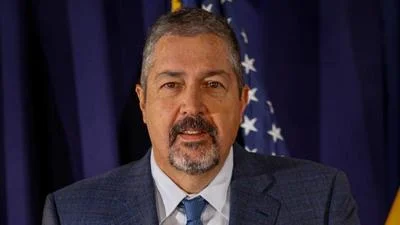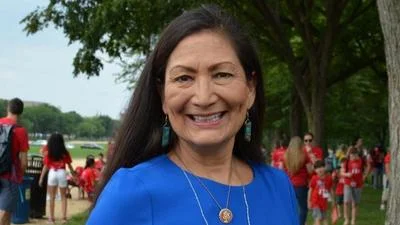Ariana Marmolejo Regional Communications Strategist (West) | Conservation Voters New Mexico
On July 1, 2025, the U.S. Senate narrowly passed President Trump's tax reconciliation package with Vice President Vance casting the deciding vote. The legislation has faced significant public opposition due to provisions that cut Medicaid funding, reduce resources for renewable energy and manufacturing projects, and expedite extractive industries. The bill now returns to the U.S. House for concurrence.
Molly Taylor, Chief Operating Officer of Conservation Voters New Mexico (CVNM), criticized the bill stating: "This bill is the most partisan anti-environmental bill in history. It is a desperate effort to find the funds to pay for the permanent billionaire tax cut." She emphasized its potential negative impacts on energy production diversification, climate change efforts, food assistance programs, and healthcare among others.
Taylor highlighted that federal clean energy funding at risk has already supported $15 billion in investments in New Mexico's clean power sector. Companies like Arcosa Wind and Maxeon Solar could be affected along with workforce training programs and environmental restoration initiatives.
The Senate's proposed cuts could increase costs for New Mexicans and threaten jobs related to clean energy and restoration efforts. Taylor warned that rural areas would be particularly vulnerable to climate change impacts if these cuts proceed.
CVNM urged U.S. House members to reject the reconciliation bill as it could harm communities by cutting essential jobs and increasing costs while benefiting billionaires through tax cuts.
Zoe Barker, CVNM Conservation Director, addressed concerns over public lands: "New Mexicans know first hand how incredibly important it is that we keep public lands in public hands." She acknowledged bipartisan opposition against land sales included in earlier versions of the bill which have since been removed but stressed ongoing threats from other administrative actions such as rescinding protections under the Roadless Rule.
Barker called on New Mexico leaders to oppose these measures threatening public lands and join statewide resistance against such actions.
Analyses by various organizations predict economic repercussions from this legislation including increased household energy costs, higher electricity rates, reduced federal spending on healthcare programs like Medicaid resulting in millions losing coverage or facing higher state expenses. Additionally, changes affecting student loan repayment plans could leave many borrowers struggling financially.
Reports indicate clean energy companies have already scaled back plans due to uncertainty surrounding policy changes impacting investments worth billions nationwide before even considering recent tariff policies introduced by Trump’s administration.
Conservation Voters New Mexico remains committed to mobilizing voters toward protecting natural resources across their state amidst ongoing political challenges presented by this legislative package.









